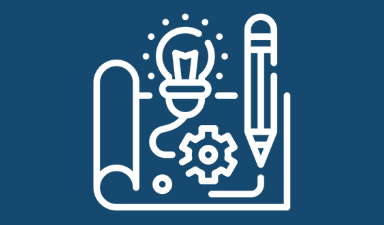Skeletal System Activities for Middle School Science
The resources below will provide students a comprehensive understanding of the skeletal system. All of the following lessons are also included in the Kesler Science Membership.
The Skeletal System 5E Lesson includes materials for every "E" phase, including the Skeletal System Station Lab for Exploration and an interactive PowerPoint with digital INB templates for Explanation.
The lesson also includes introduction materials for Engagement, student-choice project ideas for Elaboration, and assessments for Evaluation.
After completing the Skeletal System 5E Lesson, students will be able to identify the main structures and functions of the skeletal system. They will also learn about some common diseases associated with the skeletal system.
The Skeletal System Inquiry Lab is a hands-on activity that is differentiated for advanced, on-level, and modified middle school students.
Students will test if the cylindrical structure of the long bones of the appendicular skeleton is the most supportive shape.
The Skeletal System Inquiry Lab includes a brief reading passage, comprehension checks, hands-on activities, reflection questions, and a CER conclusion.
Skeletal System Classroom Experiences
Create a powerful student experience to help solidify students' understanding about the skeletal system. All of the following experiences are also included in the Kesler Science Membership.
Escape Rooms
The Body Systems Escape Room is an immersive experience for your students. It allows them to demonstrate their knowledge of all the major body systems and their structures and functions.
Students must use what they have learned to demonstrate an understanding of the structure and function of each of the different body systems to complete the escape room.
STEM CHALLENGES
The Project, Dry Bones - Create a Model Skeleton STEM Challenge uses the engineering design process to create a scale model of the skeletal system. In addition to building the model, you will also need to develop a way to label all of the bones from the list provided.
Students will be using collaborative skills such as brainstorming with their peers and reflecting on their progress during the project.
At the end of the Project, Dry Bones - Create a Model Skeleton, STEM challenge, students are given an opportunity to share their projects outside of the classroom.
Year-Round Resources
These year-round activities will increase your students' understanding of many middle school science topics. All of these activities are also included in the Kesler Science Membership.
Visual Data & Graphing
You're not alone if your students struggle with understanding graphs, charts, and tables. It's a skill that takes an enormous amount of practice. This resource will help students build a strong foundation in analyzing data and creating their own data visualizations.
Bell Ringers and Warm-Ups
These middle school science bell ringers are an excellent way to engage your students as soon as they walk into your classroom. This comprehensive FULL YEAR resource includes everything you need to start off each science class with an interesting warm-up activity.
Review Board Games
Each game board has been carefully designed to keep students engaged. There are 10 different action spaces on each board and dozens of question cards. All of the actions are related to science concepts and keep the students motivated throughout the game.
Each game is ready to play. Simply print out the board and the cards and let the students enjoy reviewing nine different units.
Essential Questions and Standards
Below are the essential questions and standards associated with the lessons and activities included in the skeletal system unit. This topic is only one of more than 100 middle school science topics included in the Kesler Science Membership.
-
What is the main function of the skeletal system and how is it structured?
-
What are the main organs in this system?
-
TEKS Science 7.12 B - Identify the main functions of the systems of the human organism, including the circulatory, respiratory, skeletal, muscular, digestive, excretory, reproductive, integumentary, nervous, and endocrine systems
Kesler Science Membership
Imagine never having to search for another middle school science lesson again. The membership gives you access to ALL of the Kesler Science products in one place (Yes, including everything above).
Say goodbye to long hours of lesson prep.



